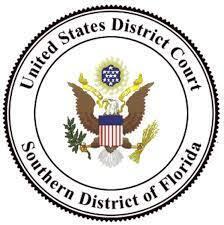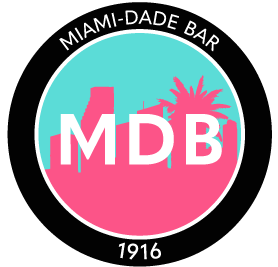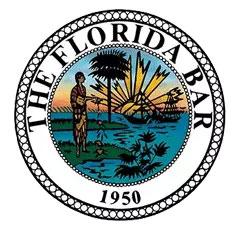Miami Probate Administration Lawyers
Respected Probate Administration Lawyers Helping Clients Across Miami, FL
Following a death, most estates have to go through a probate process to transfer assets to heirs and beneficiaries successfully. Like any legal process, probate administration can be subject to specific state laws and regulations, making a probate lawyer an invaluable resource to a case.
A Florida probate attorney's primary role is to guide clients through the probate procedure while ensuring their rights and interests are protected.
Whether you are currently confronting a probate process or have questions regarding how a probate could affect your assets, our law firm can help. At Miami Family Law Group, PLLC, our legal team is well-versed in Florida probate law, and we can answer any probate-related questions you may have.
Speak with a skilled Miami probate administration attorney at Miami Family Law Group, PLLC today. Call 305-520-7874.
Overview of the Probate Process
Probate is a complex process that involves seeing that a decedent's estate is distributed properly. This means seeing that any debts are paid off and that all remaining assets are distributed properly among the rightful heirs. When someone passes away with a will in place, this document can make the probate process considerably easier. The will identifies an executor to oversee the administration of the estate. If no will is present, then the court will be involved in appointing an official administrator who will fill the role of the executor. Because the administrator role is highly important, the appointee will need to go through a somewhat demanding application procedure.
What Is Probate?
Simply put, probate is the legal process of distributing an estate and settling debts following a person's death. The goal of probate is to make sure that the assets of the deceased person are dispersed according to their wishes in their will, or if there is not a will, according to the appropriate state laws. The court will then oversee the dispersal of the estate, which may involve property, bank accounts, investments, and any personal belongings. This process can get lengthy and complex, and it typically requires locating the deceased person's assets, paying off their debts and taxes, and then distributing the remaining assets to their beneficiaries.
Probate laws can vary from state to state, so it is important to be aware of what state you will be doing probate in. For instance, in Florida, it is required to choose a personal representative to manage the probate procedure. We advise you to speak with an experienced probate administration attorney to ensure you are fully aware of the laws and regulations applicable to your case.
What Is Probate Administration?
Probate administration is a core component of the probate process. It is court-supervised and involves identifying, managing, and finally distributing the estate following a death.
Probate administration involves several steps, including:
- Opening the probate case by submitting a petition to the probate court.
- Locating and collecting the deceased person's assets.
- Paying off any taxes and debts owed by the deceased individual or their estate.
- Transferring the remaining assets to the appropriate beneficiaries according to the will or Florida law.
- After the assets have been dispersed, closing the probate case.
A personal representative of the estate, appointed by the court, oversees this process. The personal representative can be a family member, a trusted friend, or a legal professional such as an attorney. The personal representative will be in charge of managing the estate, speaking with beneficiaries as well as creditors, and ensuring that the probate process is carried out effectively.
This process is subject to change depending on the size of the estate, specific terms in a will, or specifics of the laws where the process is done.
Summary Probate
In Florida, there is a streamlined probate process known as summary probate that allows for the quick and efficient dispersal of a person's assets in the case that their estate is on the smaller side or meets other criteria. For estates with a value less than $75,000, or if the deceased individual has been dead for over two years, summary probate can be a reasonable option. It may also be an option if a deceased person has no debts or their debts have been previously settled.
In contrast to formal administration, which can last months or even years to finish, the summary probate process is typically shorter and cheaper. In summary administration, the court will examine the estate's assets and debts and issue an order allowing the assets to be dispersed to the beneficiaries, which bypasses the need for a full formal administration process.
To initiate summary probate, the personal representative of an estate must first file a petition with the court detailing the deceased person's assets and debts, along with a request for summary administration. After the assessment of the petition, the court may make a ruling that approves the transfer of assets to the beneficiaries.
Formal Administration
Formal administration is typically used for estates greater than $75,000, and it involves more steps, court control, and formal procedures in comparison to summary administration.
In a formal administration, the court oversees all aspects of the process, and the personal representative is required to provide thorough documentation and reports of the estate. It is also required for all involved parties, such as beneficiaries and creditors, to be given notice and a chance to object to the probate process. Hearings, such as those to distinguish the validity of a will or settle disagreements between beneficiaries, may also be a part of the formal administration process.
Formal probate can be both confusing and time-consuming. Because of this, we always urge clients to consult with a probate administration attorney to make sure all probate requirements are fulfilled and common mistakes are avoided.
Is Probate Administration Necessary?
Administration of probate is typically required to distribute a deceased person's assets. In most states, if the individual has a will, it must go through probate to be considered legally valid and ensure assets are dispersed according to that will.
Under Florida probate law, even if the individual did not have a will, their assets must go through probate before being given to their heirs. In most cases, probate administration is necessary to make sure that assets are distributed according to a will as well as Florida state law.
What Can a Miami Probate Administration Lawyer Do for You?
An experienced attorney can offer clients a range of services regarding probate, such as:
- Advice and Direction - Your probate attorney can explain the probate process step by step and provide you with direction on how to manage and administer an estate. Regardless of whether you are a beneficiary, personal representative, or creditor, a probate administration attorney can help you understand your rights and responsibilities.
- Representation - If your case requires probate litigation leading you to need representation in court, a probate administration attorney becomes essential. A probate court case can involve filing petitions or objections, presenting a case to the court, and negotiating settlements.
- Legal Paperwork - One of the biggest downsides to probate is the amount of paperwork it requires. With the help of an attorney, your paperwork can be properly prepared and submitted, making sure the information is accurate and adheres to Florida law.
- Estate Valuation - An attorney can help you with the appraisal and administration of the estate's assets, including bank accounts, property, real estate, and personal possessions.
- Negotiation - A probate administration lawyer can help parties reach a settlement through both mediation and negotiation. Both of these strategies can be a quicker and more cost-effective alternative to bringing a case to court.
- Tax Planning - Legal professionals can determine and clarify the tax requirements that apply to your estate and develop a plan to reduce those taxes as much as possible.
Overall, an experienced Miami probate administration lawyer from Miami Family Law Group, PLLC can be a huge help to your probate case. A Florida probate administration attorney can not only guide you throughout the process, but they can make sure your interests are protected and ensure that the estate is handled in the most suitable way for you and your loved ones.
Probate in Miami-Dade County
The general procedure for probate in Miami-Dade County is comparable to other Florida counties. Like any county, the assets left behind after someone passes must go through the probate process before being given to heirs or beneficiaries. Those steps include:
- Submitting the Petition - The first stage in the probate process is to file a petition with the Miami-Dade County probate court. This petition must be filed by the personal representative.
- Notice of Probate - The personal representative must notify all involved or interested parties that probate is being initiated. This notice can be sent by mail or published in a local newspaper or news source.
- Estate Inventory and Appraisal - The personal representative must compile an inventory of all the possessions and assets owned by the deceased person and determine their market value. The court must receive a copy of this inventory.
- Pay taxes and debts - Before the distribution of any assets, the representative must settle any existing debts and pay all required taxes using the estate's resources.
- Asset distribution - After taxes and debts have been settled, the representative can then transfer the remaining assets to the beneficiaries following the wishes in the will or according to Florida law.
Avoid making mistakes and work with a qualified Florida probate administration attorney. A lawyer can safeguard your rights, interests, property, and the overall well-being of your family.
When Should I Work With a Probate Administration Attorney?
We recommend speaking with a probate administration attorney as soon as possible if you have been named as an heir, beneficiary, or personal representative of an estate. Below are more specific scenarios where speaking with a Florida probate administration lawyer is essential:
- Named a Personal Representative - If you have been chosen to act as the personal representative of an estate, this is a responsibility that will take your utmost attention. Working with an experienced attorney is a sure way to ensure that you are following regulations and requirements and properly handling the estate.
- Probate Disputes - If disagreements arise between beneficiaries, they can quickly turn into legal action that will cost you both money and time. Having legal counsel can help you approach disputes, negotiate agreements, and settle through mediation.
- Large Estate Taxes or Debts -If an estate is weighed down heavily with taxes and debts, it is best to discuss the circumstances with an attorney to determine how to minimize these costs and understand what legal options and responsibilities you now have.
- Complex Assets - If the estate consists of complex assets such as large business or investment portfolios, it can become difficult to value and distribute to beneficiaries. In this case, a probate attorney can ensure that the assets are correctly managed and dispersed to the appropriate parties.
- Invalid Will -If you believe the will is fraudulent or invalid for any reason, a Miami probate administration attorney can help you determine your options and pursue the legal path to combating an invalid will.
Our Miami probate administration attorneys at Miami Family Law Group, PLLC can assess your circumstances, determine your options, and guide you through the process of probate, getting the valuable assets of your loved one to the right people.
Miami Florida Probate FAQ
Answer:
The timeline of a probate case can vary depending on the type of probate pursued, the complexity and size of the estate, and any potential disputes that arise throughout a legal proceeding. In general, a probate case can take several months to up to a year to finalize.
For formal administration probate in Florida, there is a mandatory waiting period of three months from the original court filing until the probate process can be completed. This waiting period allows creditors to make and file any claims against the estate.
In summary administration, probate can move much faster, and if there is no existing debt and all beneficiaries consent, the probate can be completed in just a month.
In short, the true timeline of probate is dependent on the circumstances of the case. Discuss your circumstances with an attorney to get an estimated timeline for your case.
Answer:
Attorney fees in a probate case can vary due to the size of the estate, the type of probate, and whether disputes are raised or not. The assets of an estate are typically used to pay attorney fees.
However, depending on the specifics of the case, different regulations may apply to the payment of attorney fees. For instance, if it is explicitly stated in a will how attorney fees will be paid, it will be done in that way.
In the case the estate is unable to cover attorney costs, an arrangement will have to be made between the responsible parties and their probate administration attorneys in Miami.
Answer: If probate is starting to seem like the wrong option for you and your family, there are alternatives, including:
- Create a Revocable Living Trust - With a revocable living trust, you can transfer your assets while you are alive, and only once you have passed are those assets dispersed to the beneficiaries. This bypasses probate due to the direct distribution from a trust to the beneficiaries.
- Pay-on-Death Designations - Through a pay-on-death designation, a beneficiary can be named for specific assets, such as bank and investment accounts. These assets will then be dispersed following a person's death, without going through probate.
- Transfer-on-Death-Deeds- A transfer-on-death deed functions how it sounds. Following a death, the ownership of property or real estate can be transferred to a named beneficiary without going through probate.
While these are a handful of options that can bypass probate, it is important to consider how these options may affect your family and estate planning matters.
Assistance With Probate Administration
At Miami Family Law Group, PLLC, we provide a full range of services related to probate administration. Administering an estate can be complicated. Many different pieces are involved, and in many cases, administrators need to hire professionals to assist with certain areas. For instance, if the estate includes real estate property, an appraiser may need to be hired. Or, if the estate includes financial instruments such as bonds, a CPA or actuary may need to be consulted to determine an optimal distribution strategy. We can provide assistance when outside specialists are needed and ensure that everything is handled properly.
We can provide assistance in the following areas of probate administration: filing registration documents for a will; collecting and appraising assets; filing tax returns on behalf of the estate; selling off the property of the estate; resolving disputes with creditors and settling claims; resolving disputes among heirs; and obtaining the release of liability documentation. These are just a few of the more common areas in which we offer assistance.
Our firm understands that the probate administration process can be made more difficult because of the powerful emotions that surround it. The passing of a loved one is a traumatic experience, something which often a great deal of time and energy to deal with. At Miami Family Law Group, PLLC, we take the gravity of the situation into account when providing the professional assistance necessary to administer the estate.
Contact a Miami, FL Probate Administration Attorney
Teaming up with a premium Miami probate administration lawyer can grant you and your family access to invaluable legal resources, individualized guidance, and the assurance that the estate will be in the right hands.
Whether you have questions regarding how probate works in Florida or are looking for legal aid in your probate matters now, Miami Family Law Group, PLLC is available to help. With extensive legal experience in the State of Florida, our lawyers know how to work a probate case in a way that considers our client's rights and interests to the fullest, helping you avoid any costly errors or stressful disputes.
Make sure your estate is in the best hands. Speak with an attorney at Miami Family Law Group, PLLC today by calling 305-520-7874 or contacting us online.
Contact Miami Family Law Group, PLLC
Our attorneys are ready to help address your legal needs. Schedule an appointment by calling 305-520-7874 or contacting us online.










